Will a leaked phone call lead to a Thailand coup?
Paetongtarn’s conversation with Hun Sen has hit a nerve in Thailand’s fragile civil-military dynamics and regional diplomacy, analysts say
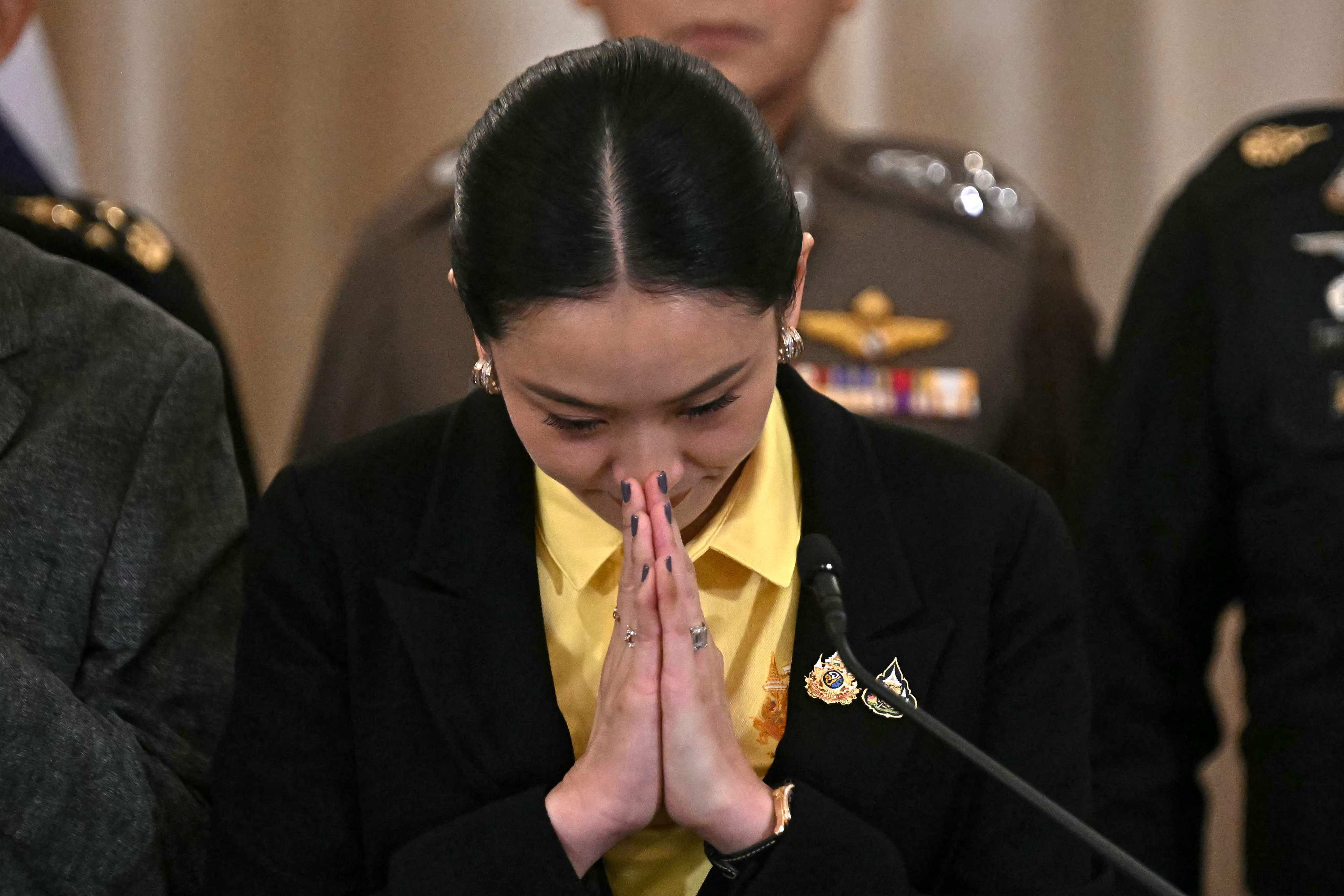
Paetongtarn Shinawatra’s coalition government in Thailand is teetering on the edge of collapse following the prime minister’s leaked phone call with former Cambodian leader Hun Sen, but observers are mixed on whether a feared military coup will occur.
In the leaked audio clip which emerged on Wednesday, Paetongtarn was heard addressing Hun Sen, a family friend, as “uncle” and appeared to dismiss a Thai military commander.
The clip has sparked outrage from quarters of the country’s ruling coalition, including the withdrawal of a key royalist partner group of Paetongtarn’s Pheu Thai party, as well as calls for her to resign.
“I would like to apologise for the leaked audio of my conversation with a Cambodian leader which has caused public resentment,” Paetongtarn, 38, said on Thursday.
Greg Raymond, a senior lecturer at the Australian National University’s Coral Bell School of Asia-Pacific Affairs, said he had heard the leaked call, which might “spell the end” for Paetongtarn, adding however: “I suspect no coup will take place.”
“It’s a typical rumour and although I might be wrong, it will be fairly easy for the Pheu Thai government to be brought down now by other means,” he said, pointing to options that included judicially or through a parliamentary shake-up.
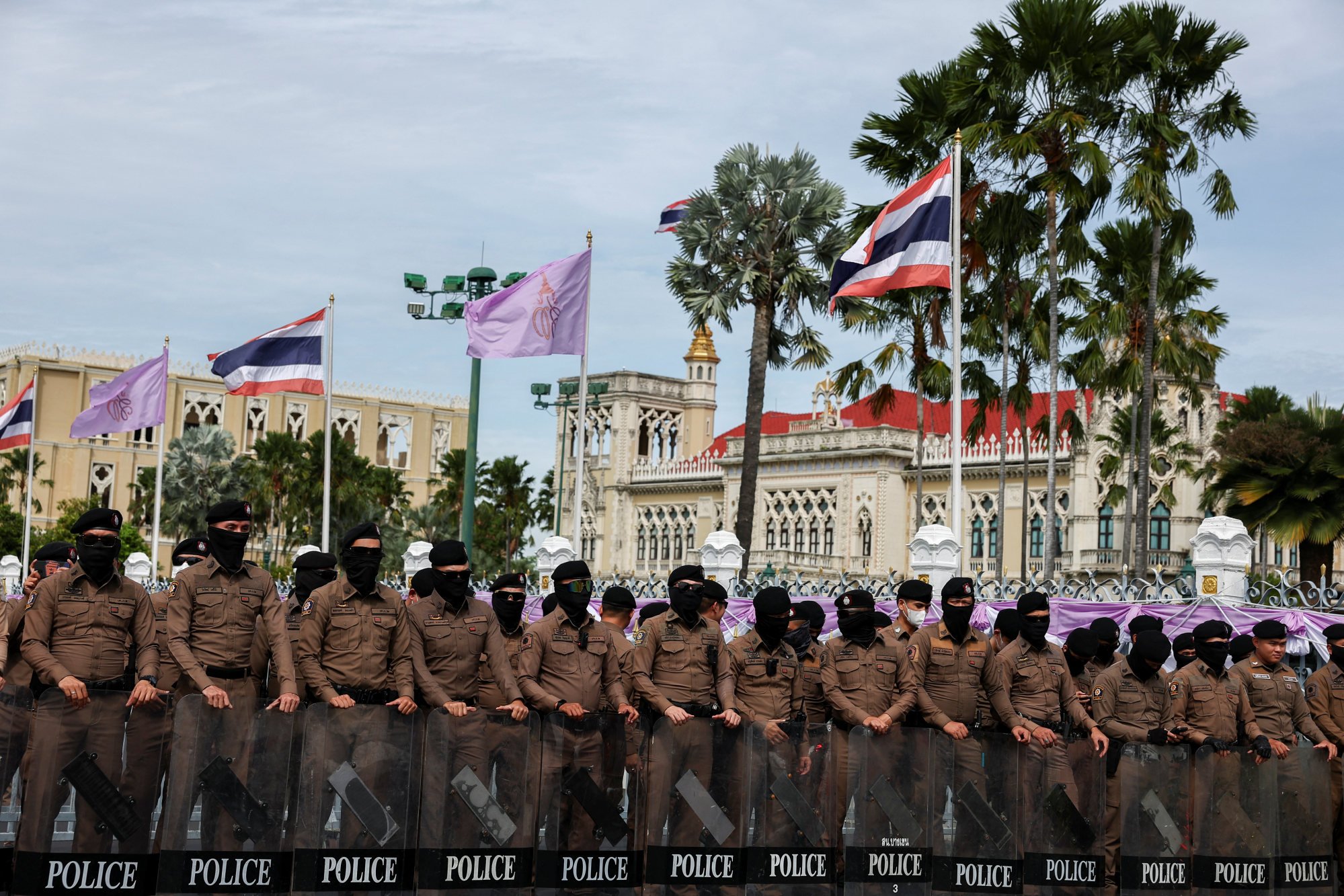
Prem Singh Gill, a visiting scholar at the Muhammadiyah University of Yogyakarta’s faculty of law, said however that a coup was “increasingly likely in the immediate term”, noting that the leaked audio had created a perfect juridical pretext for military intervention under Thailand constitutional framework.
“Paetongtarn’s characterisation of the 2nd Army Area Commander as the ‘opposing side’ constitutes what legal scholars would classify as seditious speech against state institutions,” Gill warned, adding it could also be seen as a textbook violation of her oath of office.
He added that the military now possessed both legal justification (institutional betrayal) and political cover (government instability) for intervention.
“Thailand’s military has overthrown governments for far less provocative statements. This leak doesn’t just invite a coup, it practically demands one from the military’s institutional perspective,” Gill said.
He added that speculation of a coup had emerged as the leaked audio violated Thailand’s most sacred political taboo: civilian leaders publicly disparaging military institutions.
Within hours of the leak, Bangkok’s political networks began circulating the recording as evidence of Paetongtarn’s fundamental unsuitability for leadership, he noted.
“The military’s informal communication channels rapidly disseminated interpretations framing her comments as institutional betrayal,” Gill said.
“The rumours crystallised into coup expectations because they exposed the Shinawatra family’s perpetual vulnerability: their perceived prioritisation of international relationships over domestic institutional loyalty.”
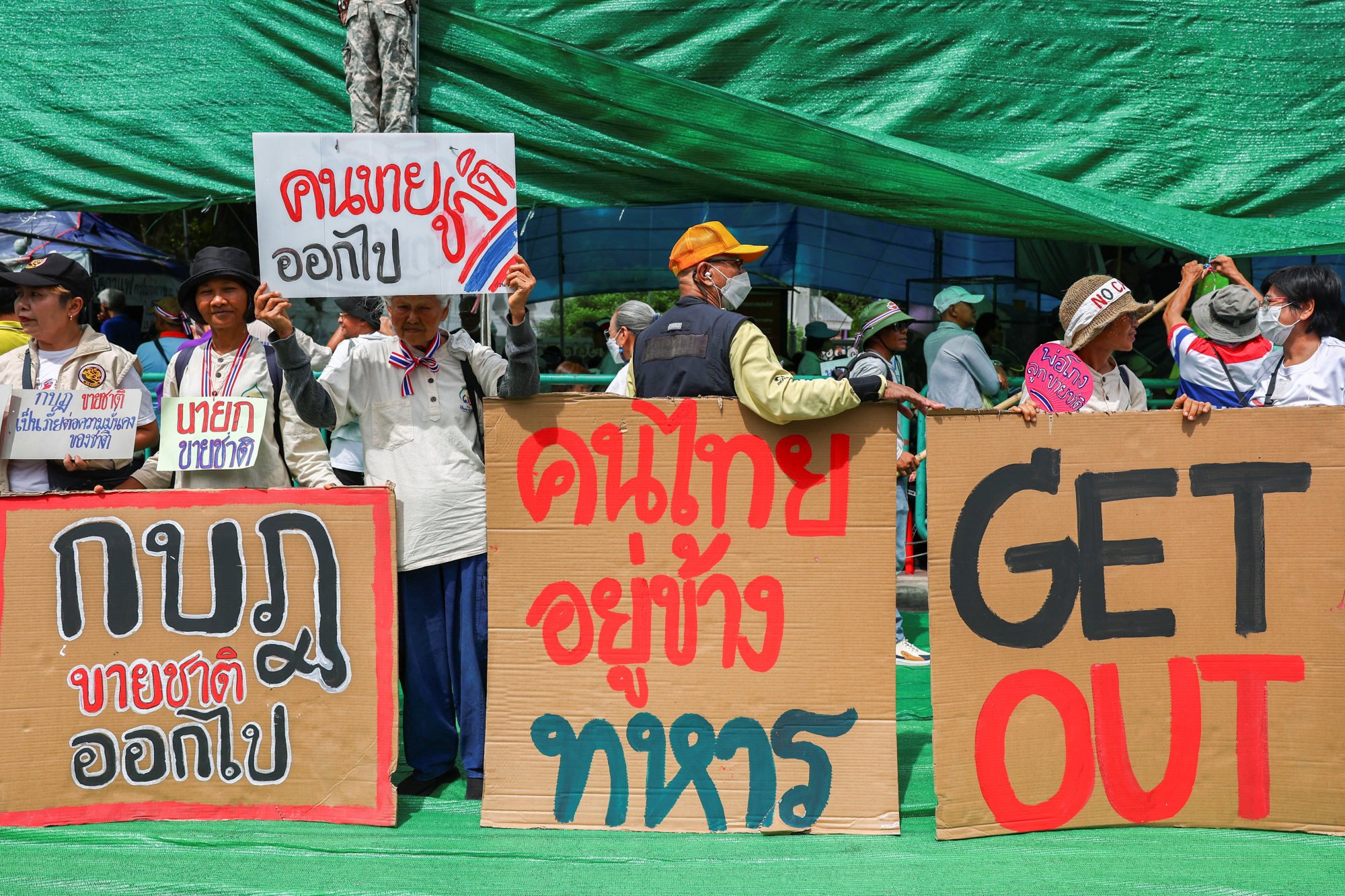
Pavin Chachavalpongpun, professor at Kyoto University’s Centre for Southeast Asian Studies, said the leak had triggered “quite a political mess” not just for Paetongtarn’s government, but also for Thailand’s civil-military dynamics and regional diplomacy.
In the 17-minute call, Paetongtarn also refers to a Thai general as someone who is just “playing tough” while asking Hun Sen to help calm a tense border situation.
“While her tone was friendly and arguably diplomatic, the reaction at home was far from forgiving,” Pavin said, adding that what followed was political chaos.
Bhumjaithai, a key coalition partner, pulled its support from the government, plunging Paetongtarn’s Pheu Thai party into a serious parliamentary crisis.
Paetongtarn’s coalition now holds a slim majority – which will be lost if more of its partners decide to leave.
“Although she quickly apologised and explained that her comments were part of a broader diplomatic effort – not an attack on the military – it did not seem to ease the pressure,” Pavin said.
“The Thai army, always quick to protect its image, issued a statement affirming its loyalty to the monarchy. It was a move that spoke volumes, essentially positioning itself as the adult in the room amid what they framed as a misstep by a civilian leader.”
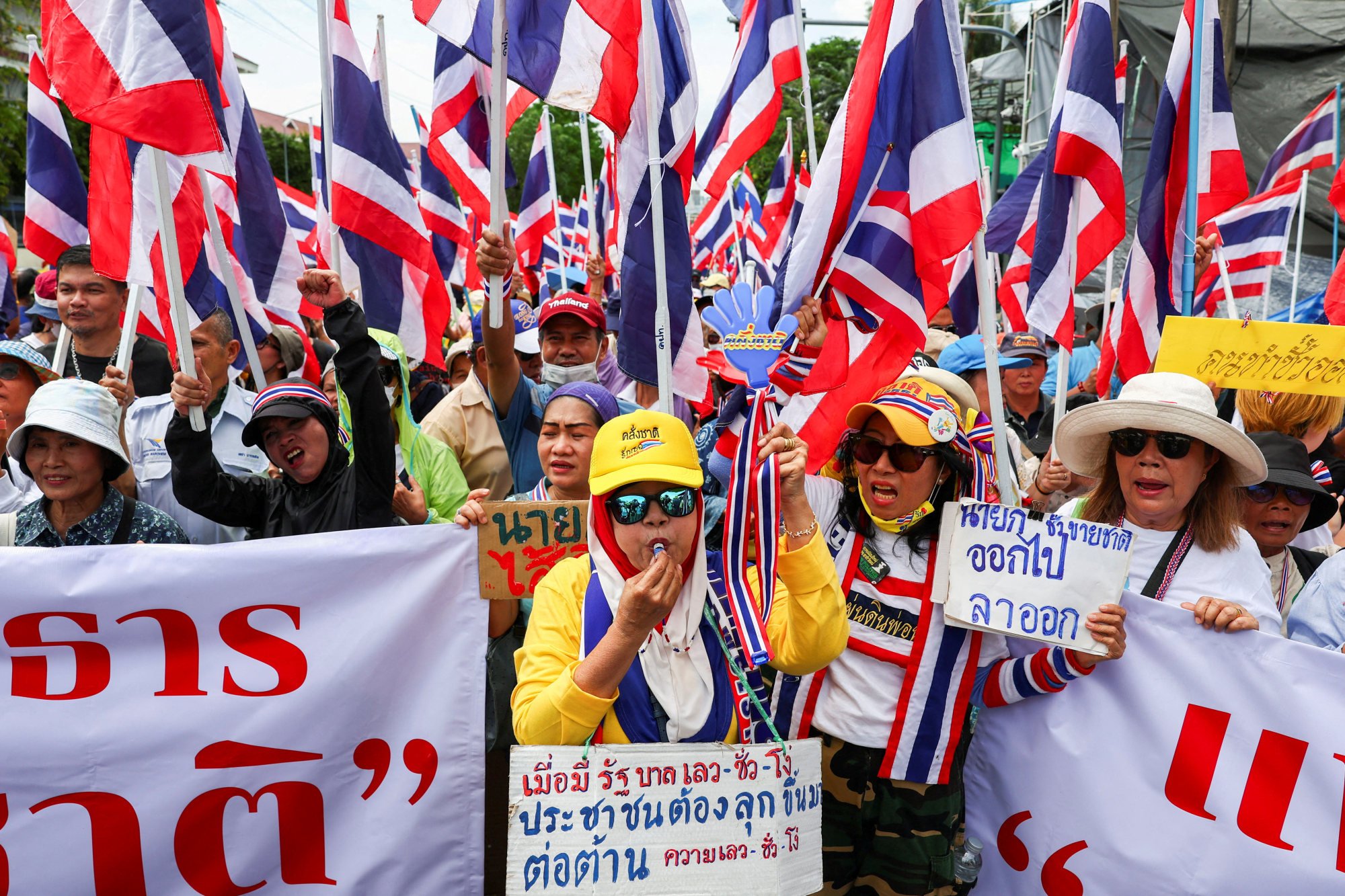
‘Regional headache’
At the heart of the leak is a long-standing issue in Thai politics – the tense and often unspoken power struggle between elected governments and the military establishment, according to Pavin.
“Even though Thailand is supposedly under civilian rule, the military still holds tremendous influence,” he said.
“In this case, Paetongtarn’s offhand remark – seen as critical of the military – was enough to reignite old tensions, especially considering her family name and the military’s historic distrust of the Shinawatras.”
Paetongtarn’s aunt Yingluck and father Thaksin were also former prime ministers of Thailand.
As for the Thai monarchy, “the silent but central figure in Thai politics”, according to Pavin, by the military stressing allegiance to royalty, it reminded all where real legitimacy in Thailand lay.
“Paetongtarn did not directly challenge the monarchy, but in the Thai political context, any perceived slight to the military is easily linked to questions of loyalty to the crown. That’s the tightrope every Thai leader has to walk,” Pavin noted.
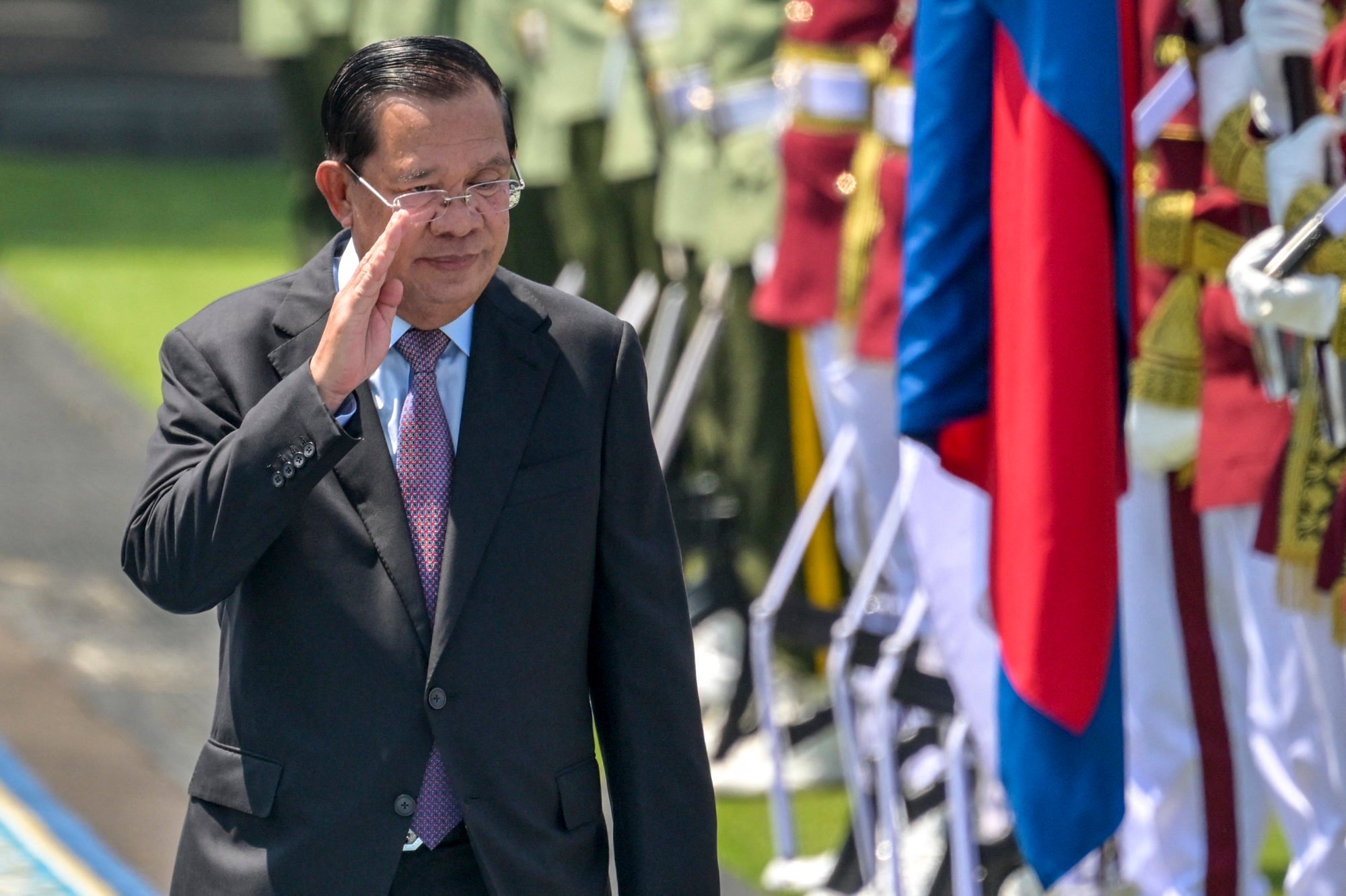
The incident also shed light on how personal relationships were often used in diplomacy across Southeast Asia, Pavin said.
While Paetongtarn addressing Hun Sen as “uncle” might have been a bid to leverage familiarity to ease cross-border tensions, Pavin said it exposed the risk of informal diplomacy.
“Once that private tone became public, it backfired. Critics painted it as too casual, too soft, and even naive,” he said. “When it works, it is seen as clever and effective, but when it fails, it opens the door to attacks on competence and loyalty.”
Reactions from the Cambodian side – such as restricting trade and suspending media broadcasts – showed the situation remained “sensitive”, Pavin said, noting that the moves had undermined Paetongtarn’s original goal of easing tensions.
“Instead of building goodwill, it escalated into a regional headache.”
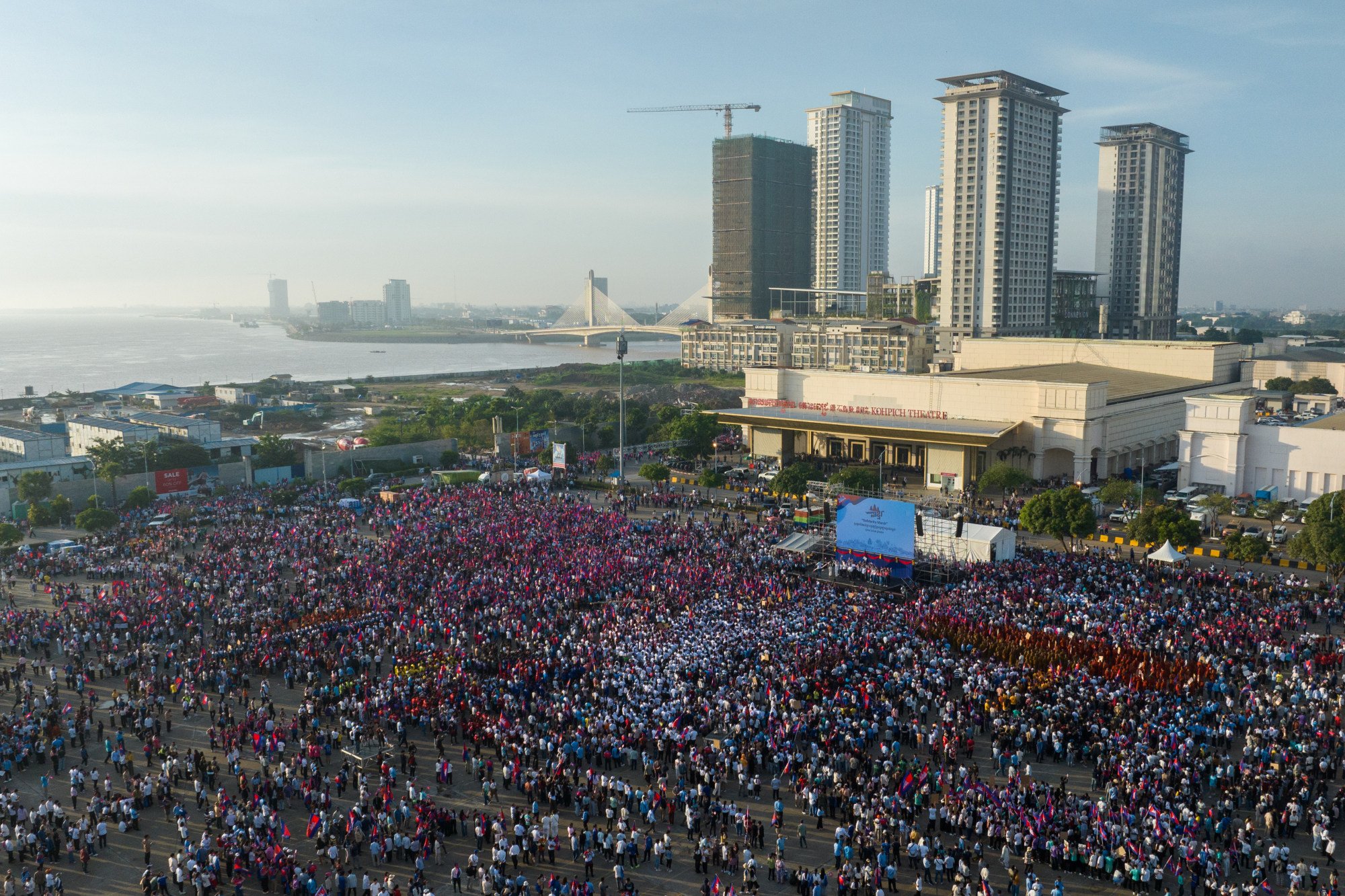
Analysts from Cambodia also note that the leaked audio appears to have reinforced Phnom Penh’s consistent claim that it was Bangkok that initiated the border closure.
“Despite the mutually agreed repositioning of troops, the checkpoints have not returned to normal operations as promised,” said Sok Udom Deth, international relations professor at Cambodia’s Paragon International University.
It also demonstrated Cambodia’s frustration that negotiations remained “unfruitful” as long as the Thai government was unable to control its military in border affairs, “effectively making Cambodia a hostage to Thailand’s domestic power dynamics”, Deth added.
The likely fallout from the leaked conversation is that a more “hawkish” Thai government could emerge, and this “certainly does not bode well for bilateral relations” in the near term, according to Deth.